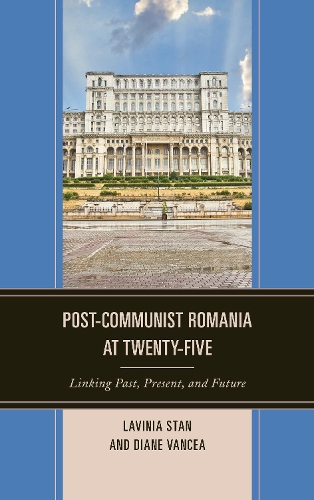
Post-Communist Romania at Twenty-Five: Linking Past, Present, and Future
(Paperback)
Available Formats
Publishing Details
Post-Communist Romania at Twenty-Five: Linking Past, Present, and Future
By (Author) Lavinia Stan
Edited by Diane Vancea
Bloomsbury Publishing PLC
Lexington Books
12th April 2019
United States
Classifications
Tertiary Education
Non Fiction
Political structure and processes
Central / national / federal government policies
Cultural studies
327.498
Physical Properties
Paperback
326
Width 153mm, Height 224mm, Spine 24mm
494g
Description
2014 marked the 25th anniversary of the collapse of communist regimes in Eastern Europe. The events of 1989 are widely seen as having ushered in new all-encompassing reforms in almost all areas of life. In few other places were reforms more contested and divisive than in Romania, a country that suffered greatly under the sultanistic-cum-totalitarian dictatorship of Nicolae Ceausescu, faced the regions only bloody anti-communist revolt, and as such had the longest to travel on the road from communism to democracy. We now have a generations worth of experience with these wrenching reforms that have deeply affected Romanias political institutions and political culture, and ultimately allowed it to become a member of the coveted European Union club. This volume gathers key lessons for democratic theory and practice from Romanias first twenty-five years of post-communist transformation. Written by leading experts in the field of Romanian Studies, the chapters focus on the most important factors that have shaped the countrys political transformation during the first 25 years of post-communism.
Author Bio
Lavinia Stan is associate professor of Political Science at St. Francis Xavier University, Canada. Diane Vancea is professor in the Faculty of Economic Studies and Vice-rector of the Ovidius University of Constanta, Romania.
